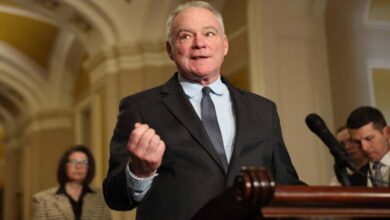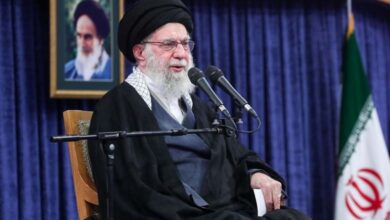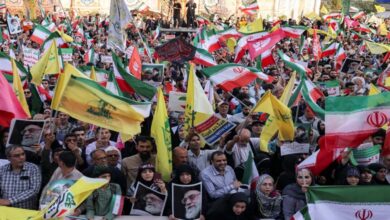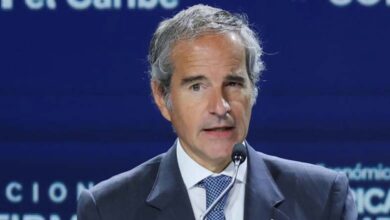The Muslim Brotherhood in Austria in 2024: From “Exposing Activities” to the Path to Banning
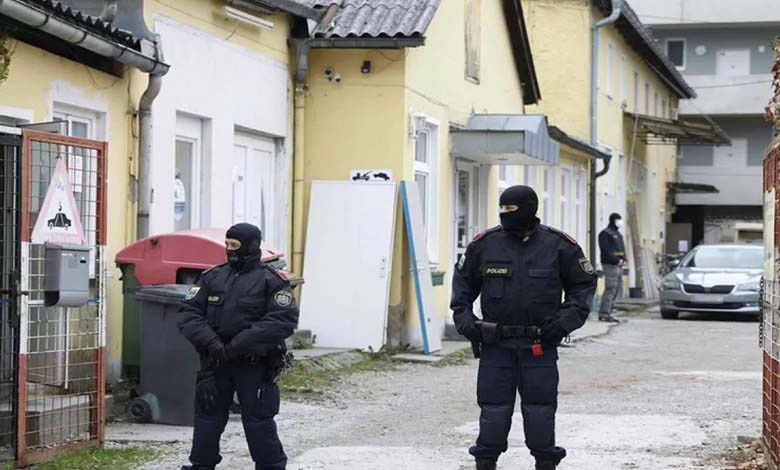
From “exposing branches” to the debate over banning, 2024 has placed the Muslim Brotherhood and political Islam in Austria on the path to their end, both legally and socially.
-
New details of Austria’s Muslim Brotherhood cells
-
Banning Political Islam in Austria? A Leading Expert Responds
It all started with financial crimes, in March last year, when revelations surfaced about a massive financial fraud behind the Brotherhood‘s bank, or what is known as the Rahma Organization, after accusations of terrorism financing were also directed at the same organization.
A long time ago, the “Rahma Austria” association, founded in 2006, received the Austrian donation quality seal, allowing anyone donating to the association to deduct their donation from taxes. The association received around four million euros annually, primarily for projects in Gaza and Africa.
-
France: Number of Muslim Brotherhood members has doubled since 2019, from 50,000 to 100,000
-
“Terrorism and Extremism in Europe from the Inside”: A Book Warns of the Dangers of the Muslim Brotherhood
However, the organization has gradually fallen under suspicion of being part of a terrorist organization or financing terrorism, as part of investigations carried out by the Austrian public prosecutor on the “Muslim Brotherhood” file since 2020.
The suspicion, specifically, concerns the fact that donations received by “Rahma Austria” are supporting the “Hamas” movement.
Since November 2020, the public prosecutor in Graz, Austria, has been investigating the Muslim Brotherhood for charges related to financing terrorism, spreading extremism, and inciting hatred, without a conclusion being reached yet.
-
Austria takes steps to enhance its Counter-Terrorism Capabilities
-
The Brotherhood worked to establish its schools in Europe to expand its ideas
“Rahma” Fraud
With the beginning of 2024, a new case was added to the suspicion surrounding “Rahma Austria,” after Hansjörg Bacher, spokesperson for the public prosecutor’s office in Graz, confirmed that investigations were once again opened against the association, this time for financial crimes, according to the newspaper “Kurier.”
Rahma has between 30,000 and 35,000 donors, but since the start of the investigation, most of the association’s bank accounts (four out of five) have been closed by the banks.
-
On June 30… Which countries have classified the Muslim Brotherhood as a “Terrorist Organization”?
-
Analysts reveal the danger of Muslim Brotherhood expansion in European Societies
While “Kurier” did not specify the nature of the financial and property crimes suspected by the prosecutor, it was learned at the time that the suspicions involved tax fraud, embezzlement, and mismanagement of donations, as well as attempts to circumvent social security funds.
Aside from the suspicions regarding the relationship between “Rahma Austria” and the Hamas movement, the organization, which claims to be a charitable entity, is part of the Muslim Brotherhood network in Austria.
-
Analysts Reveal France’s Stringent Measures to Confront the Brotherhood Threat in France
-
A researcher in political Islam reveals the Brotherhood’s evasions to conceal their sources of funding… Details
According to a study on the Muslim Brotherhood network in Austria conducted by researcher Lorenzo Vidino in 2017, the Cultural Association, the main organization of the Muslim Brotherhood in Austria, organizes “charitable” events in cooperation with Rahma Austria.
The study also revealed that the Cultural Association frequently collaborates with other groups in Austria, including Rahma Austria, to organize fundraisers for the Muslim Brotherhood in the country.
-
French campaigns to ban the Muslim Brotherhood in the European Union… Details
-
How do the economic crises of the Muslim Brotherhood affect the group in Europe?
“Dangerous” Activities
In June last year, a report from Austria’s Constitutional Protection and Counter-Terrorism Office (“domestic intelligence”) highlighted the activities of the Muslim Brotherhood aiming to achieve the group’s objectives and lead their “double game.”
There are Islamist radical organizations in Austria, but the most well-known group currently is the Muslim Brotherhood and organizations that are indirectly linked to or influenced by its ideology.
The report specifies that, to achieve social change, these organizations have primarily used legal influence over politics and society since early 2023.
-
Why Did the American and British Intelligence Create the Muslim Brotherhood? Writer Thierry Meyssan Answers
-
Strike every year… Germany besieges extremists and tightens the noose on Iran and the Muslim Brotherhood by banning their activities
It continues to highlight how the Muslim Brotherhood and affiliated organizations sought to exert both quantitative and qualitative influence, including activities aimed at making an impact in the education and training sector.
The report also notes the effort by the Muslim Brotherhood to influence national and international decision-makers, citing the example of their attempt to control media discourse.
-
Paraguay Places the Muslim Brotherhood on the Terror List
-
Defeats and hits.. Broad European Movements against the Brotherhood Terrorist Organization
The Impact of Swift
Last fall, the potential of a terrorist attack occurring in Vienna during American singer Taylor Swift’s concert reignited the debate over the implementation of a law banning political Islam, with the Muslim Brotherhood at the center of the issue.
On the political stage, the far-right “Freedom Party,” as well as the leader of the Social Democratic Party of Lower Austria, Sven Hergovich, expressed their support for the idea of such legislation.
In public opinion analysis, the “Unique Research” group surveyed 800 people over the age of 16 with voting rights regarding the ban on political Islam.
-
Analysts reveal fate of Brotherhood’s economic and charitable institutions and networks in Europe
-
Details of the German parliament session on the Brotherhood
The survey revealed that 67% of those surveyed supported the adoption of a law banning political Islam, similar to the law against Nazism in Austria.
The Path to Banning
At the end of November last year, Austrian magazine “Profil” reported that anonymous sources claimed the People’s Party, currently in the process of forming a new government, was proposing a law banning “political Islam,” similar to the anti-Nazism law, as part of negotiations to form a coalition government with the Social Democratic Party and the Neos (liberal party).
This proposed law was put on the table of negotiations by Karl Maher, leader of the People’s Party in Vienna, who is currently negotiating with Interior Minister Gerhard Karner on issues of migration, asylum, and internal security.
-
In detail – How does Europe defeat the Brotherhood’ plans to spread extremism?
-
Historic Blows… The Stages of Germany’s Fight against the Brotherhood and Its Organizations
In an interview with the newspaper “Der Standard,” the leader of the “Neos” party, Beate Meinl-Reisinger, was not the only one to support this proposal, which she described as a “last resort.” Regional sections of the Social Democratic Party also welcomed this initiative.
The Lower Austria group had already called for such a ban last May, following pro-“caliphate” protests in Hamburg, Germany.
Support for the ban on political Islam within the Social Democratic Party deprives these movements of a significant political ally on the center-left, which has acted as a barrier to past attempts at banning, citing the need not to upset the country’s Muslims.
-
Germany tightens noose on Brotherhood… a document exposes the group’s cross-border terrorism
-
The Brotherhood in Bosnia… Desperate attempts for a foothold
The leader of the Social Democratic Party in Lower Austria, Sven Hergovich, said: “The fight against religious extremism is a political priority for me. It is good that proposals on this subject are being discussed in government negotiations to close possible legal gaps.”
According to observers, support from other parties outside the ruling coalition, notably the Freedom Party, for the ban on political Islam could make next year the year of the end of these movements in Austria, with favorable predictions for the adoption of this legislation in the negotiations.


